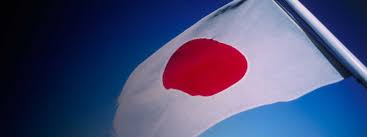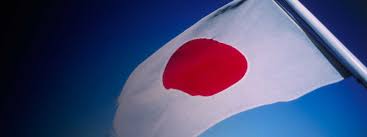
As Beijing's crackdown on capital outflows prevents some Chinese companies from making foreign acquisitions and as Japan’s cashed-up companies seek to buy growth prospects elsewhere in the world, bankers and lawyers said that Japan Inc may become a more important force in dealmaking next year.
Japanese companies had spent $93 billion overseas this year, up to Dec. 19, facing tepid prospects at home after decades of stagnation amid a shrinking population. While Chinese companies have spent $217 billion so far in 2016, for Japan, little changed from a record $96 billion in all of 2015, but up from just $51 billion in 2013, Thomson Reuters data shows.
Outbound acquisitions are expected to maintain a fast pace next year, with Japanese companies hoarding a record $3.2 trillion in cash, according to government data.
It does mean that Japanese companies will tend to be earning more of the Japanese currency from overseas assets even while the recent weakening of the yen against the dollar will make American acquisitions more expensive in yen terms.
Among recent deals, Asahi Group Holdings this month beat rivals, including China Resources, to buy Anheuser-Busch InBev's eastern European beer brands for 7.3 billion euros ($7.6 billion).
China's State Administration of Foreign Exchange is increasing scrutiny of major outbound deals to curb capital outflows that are hurting the value of the yuan and is vetting transfers abroad worth $5 million or more.
"Japanese buyers have a low cost of capital, strong cash balances and a strong appetite to diversify out of their home market," said Mayooran Elalingam, Deutsche Bank's head of Asia-Pacific M&A in Hong Kong. "At the same time, they do not have the regulatory or political constraints of a Chinese purchaser."
The bankers said that Japan's cashed-up insurers are likely to step up their aggressive hunt for overseas businesses.
Citing Suntory Holdings Ltd and Kirin Group Holdings Ltd, an M&A banker at a European investment bank said that Japanese beverage makers could buy abroad. Among invesorrs expressing an interest in buying stakes in Saigon Beer Alcohol Beverage Corp, or Sabeco, Vietnam's biggest brewer, and its smaller rival Habeco are Kirin and Asahi Group Holdings.
An Asahi spokesman said it was "looking with interest" at Sabeco and Habeco. Sabeco declined to comment and Habeco did not respond to a Reuters request for comment.
Alexis Papasolomontos, an M&A partner at law firm Herbert Smith Freehills said that next year, the natural resources sector could also see the Japan-China rivalry. The sector is of growing interest to Japan while traditionally favored by China.
Thomson Reuters data shows that up from $5 billion last year, Japanese buyers spent $9 billion in the energy and materials sectors this year. Splurging a record $87 billion in that sector this year versus $16 billion last year was China, focused on acquiring energy and food assets.
Despite this Japan's record with overseas acquisitions has been spotty. Toshiba Corp said sending its stock plunging on Tuesday after s announced that it was considering booking a goodwill impairment loss of several hundreds of billion yen on a U.S. nuclear power acquisition.
as the American population rises. U.S. President-elect Donald Trump's pledges to cut business taxes, spend on infrastructure and slash business regulation means the appeal of the U.S. market is likely to increase and since U.S.’s economic growth has been generally higher than Japan's, Japanese companies have been drawn to the U.S. market.
"America's appeal won't change for Japanese firms," said Shinsuke Tsunoda, global head of M&A at Nomura Securities Co.
(Source:www.reuters.com)
Japanese companies had spent $93 billion overseas this year, up to Dec. 19, facing tepid prospects at home after decades of stagnation amid a shrinking population. While Chinese companies have spent $217 billion so far in 2016, for Japan, little changed from a record $96 billion in all of 2015, but up from just $51 billion in 2013, Thomson Reuters data shows.
Outbound acquisitions are expected to maintain a fast pace next year, with Japanese companies hoarding a record $3.2 trillion in cash, according to government data.
It does mean that Japanese companies will tend to be earning more of the Japanese currency from overseas assets even while the recent weakening of the yen against the dollar will make American acquisitions more expensive in yen terms.
Among recent deals, Asahi Group Holdings this month beat rivals, including China Resources, to buy Anheuser-Busch InBev's eastern European beer brands for 7.3 billion euros ($7.6 billion).
China's State Administration of Foreign Exchange is increasing scrutiny of major outbound deals to curb capital outflows that are hurting the value of the yuan and is vetting transfers abroad worth $5 million or more.
"Japanese buyers have a low cost of capital, strong cash balances and a strong appetite to diversify out of their home market," said Mayooran Elalingam, Deutsche Bank's head of Asia-Pacific M&A in Hong Kong. "At the same time, they do not have the regulatory or political constraints of a Chinese purchaser."
The bankers said that Japan's cashed-up insurers are likely to step up their aggressive hunt for overseas businesses.
Citing Suntory Holdings Ltd and Kirin Group Holdings Ltd, an M&A banker at a European investment bank said that Japanese beverage makers could buy abroad. Among invesorrs expressing an interest in buying stakes in Saigon Beer Alcohol Beverage Corp, or Sabeco, Vietnam's biggest brewer, and its smaller rival Habeco are Kirin and Asahi Group Holdings.
An Asahi spokesman said it was "looking with interest" at Sabeco and Habeco. Sabeco declined to comment and Habeco did not respond to a Reuters request for comment.
Alexis Papasolomontos, an M&A partner at law firm Herbert Smith Freehills said that next year, the natural resources sector could also see the Japan-China rivalry. The sector is of growing interest to Japan while traditionally favored by China.
Thomson Reuters data shows that up from $5 billion last year, Japanese buyers spent $9 billion in the energy and materials sectors this year. Splurging a record $87 billion in that sector this year versus $16 billion last year was China, focused on acquiring energy and food assets.
Despite this Japan's record with overseas acquisitions has been spotty. Toshiba Corp said sending its stock plunging on Tuesday after s announced that it was considering booking a goodwill impairment loss of several hundreds of billion yen on a U.S. nuclear power acquisition.
as the American population rises. U.S. President-elect Donald Trump's pledges to cut business taxes, spend on infrastructure and slash business regulation means the appeal of the U.S. market is likely to increase and since U.S.’s economic growth has been generally higher than Japan's, Japanese companies have been drawn to the U.S. market.
"America's appeal won't change for Japanese firms," said Shinsuke Tsunoda, global head of M&A at Nomura Securities Co.
(Source:www.reuters.com)





